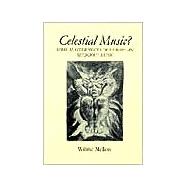
| Foreword | ix | ||||
| Prologue: What is religious music? | xi | ||||
| Part I: The Ages of Christian Faith | |||||
|
3 | (6) | |||
|
|||||
|
9 | (7) | |||
|
|||||
|
16 | (7) | |||
|
|||||
|
23 | (6) | |||
|
|||||
|
29 | (7) | |||
|
|||||
|
36 | (6) | |||
|
|||||
|
42 | (9) | |||
|
|||||
| Part II: The Re-birth of a Re-birth: from Renaissance to High Baroque | |||||
|
51 | (9) | |||
|
|||||
|
60 | (6) | |||
|
|||||
|
66 | (12) | |||
|
|||||
|
78 | (6) | |||
|
|||||
|
84 | (13) | |||
|
|||||
| Part III: From Enlightenment to Doubt | |||||
|
97 | (8) | |||
|
|||||
|
105 | (8) | |||
|
|||||
|
113 | (11) | |||
|
|||||
|
124 | (8) | |||
|
|||||
|
132 | (11) | |||
|
|||||
|
143 | (13) | |||
|
|||||
|
156 | (17) | |||
|
|||||
| Part IV: From `the Death of God' to `the Unanswered Question' | |||||
|
173 | (13) | |||
|
|||||
|
186 | (18) | |||
|
|||||
|
204 | (17) | |||
|
|||||
| Part V: The Ancient Law and the Modern Mind | |||||
|
221 | (9) | |||
|
|||||
|
230 | (14) | |||
|
|||||
|
244 | (9) | |||
|
|||||
|
253 | (17) | |||
|
|||||
|
270 | (19) | |||
|
|||||
|
289 | (18) | |||
|
|||||
| Epilogue | 307 | (4) | |||
| Index | 311 |
The New copy of this book will include any supplemental materials advertised. Please check the title of the book to determine if it should include any access cards, study guides, lab manuals, CDs, etc.
The Used, Rental and eBook copies of this book are not guaranteed to include any supplemental materials. Typically, only the book itself is included. This is true even if the title states it includes any access cards, study guides, lab manuals, CDs, etc.